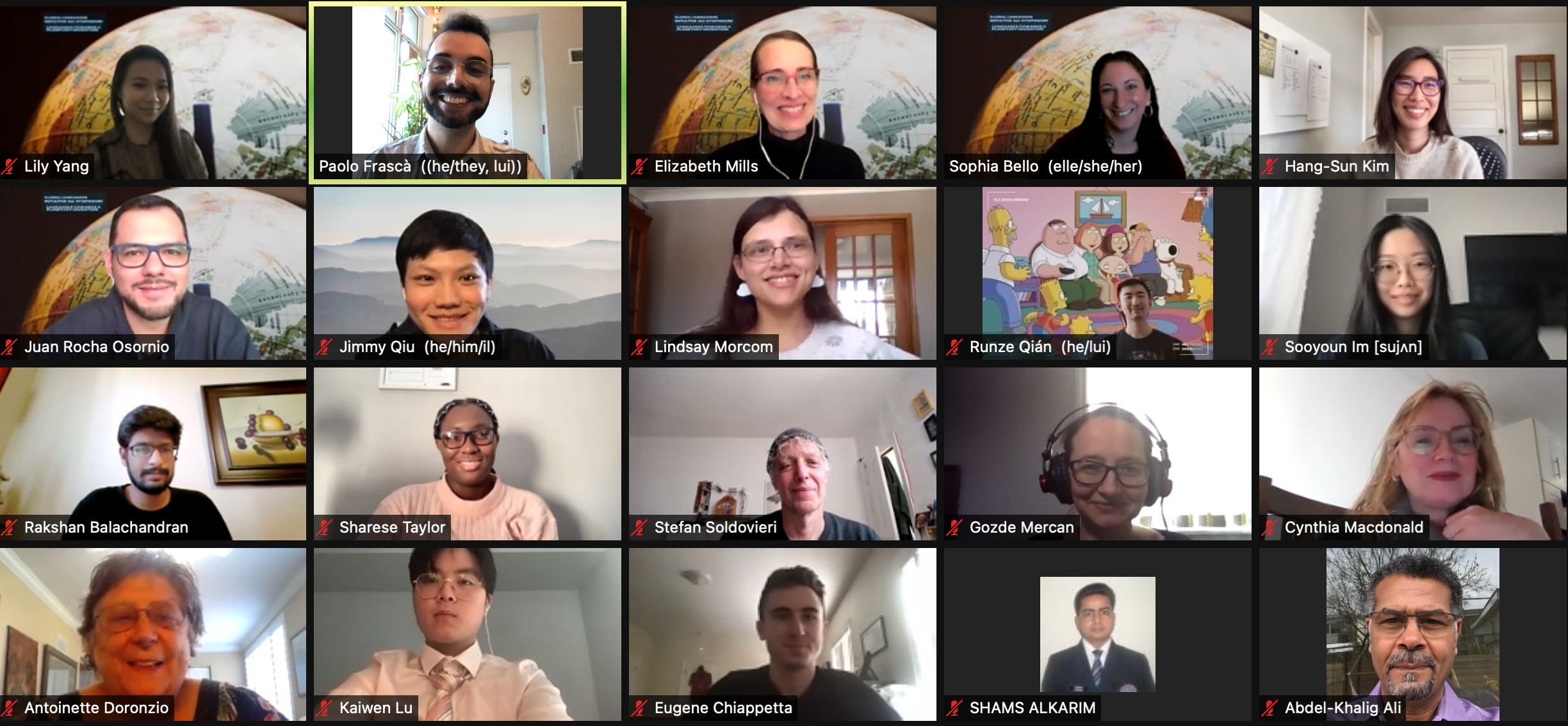Language teaching plays a critical role in Canada today: a society that was once multicultural — made up of separate communities living alongside each other — is now “pluricultural.” This means that citizens engage regularly not only within their own cultures and languages, but with those of their friends, neighbours and colleagues.
It’s a reality in many countries around the world, and an exciting new initiative at U of T is helping students prepare for it. The Global Languages Initiative (GLI) is a collaborative effort uniting 15 departments in the Faculty of Arts & Science. Its mission is to increase access to language instruction across disciplines, with the aim of promoting intercultural competence and global fluency.
Says Paolo Frascà, assistant professor, teaching stream, and coordinator of language courses in the Department of Italian Studies: “What brings our language departments together is the philosophy that in order to become universal citizens, students should have access to another culture and another language.”
The GLI was instigated two years ago by Stefan Soldovieri, chair of the Department of Germanic Languages & Literatures. “We were interested in connecting language departments — and not just traditional language departments, since religion, for example, also offers language courses. We wanted to get everyone together in a way that really hadn’t happened before,” he says.
Learning and interacting in different languages — even different ones at the same time —really is part of human nature and history. It brings us back to a truth about what it means to be human.
The group also sees itself as an ally for the revitalization of Indigenous and endangered languages, and encourages community-based learning. Since its inception, the GLI has held several events, including a panel discussion on the benefits of being able to use multiple languages in the job market. “That was wonderful,” says Frascà. “We invited several students to speak about how studying languages had really made a difference for them in the world at large, and in their professional development.” In October, the group also hosted a talk on plurilingualism by OISE professor Enrica Piccardo.
At the end of January, the group held its first major event. Entitled Languages Toward a Planetary Education, the symposium featured a number of invited speakers and various other activities. One of these was an “Artistic Intervention” where students read poetry in translation and played music. They were also offered a forum to discuss the challenges and rewards of learning second and third languages.
One of the most significant features of the symposium was an administrators’ roundtable, where department chairs and professors shared ideas designed to improve best practices in language instruction.

The roundtable was a particular highlight for GLI member Juan Carlos Rocha Osornio, assistant professor, teaching stream in the Department of Spanish & Portuguese.
“We talked about some of the challenges we face in organizing our departments — including the importance of providing excellent training for our teaching assistants,” says Rocha Osornio.
Other topics included the optimal management of classes containing students with different heritage languages and fluency levels, as well as ideas for building community when classes are larger or held online.
Rocha Osornio says the symposium is scheduled to repeat next year, with other events to be held during 2022. One insight that stood out for him from the two-day event was the notion of bravery in language learning — a concept articulated by keynote speaker Lindsay Morcom, assistant professor in the Faculty of Education at Queen’s University.
“She was able to connect that idea to all languages,” he says. “That’s what stood out for me the most, since students can often be hesitant and nervous when they try to learn a new language. They really need to stand outside of their comfort zone.” When they do so, he says, they come to make valuable connections with whole new communities.
Frascà echoes that thought, reasserting that language instruction is essential to building bridges between all groups in our society, and to fostering tolerance and understanding.
“Learning and interacting in different languages — even different ones at the same time —really is part of human nature and history,” he says. “It brings us back to a truth about what it means to be human.”

